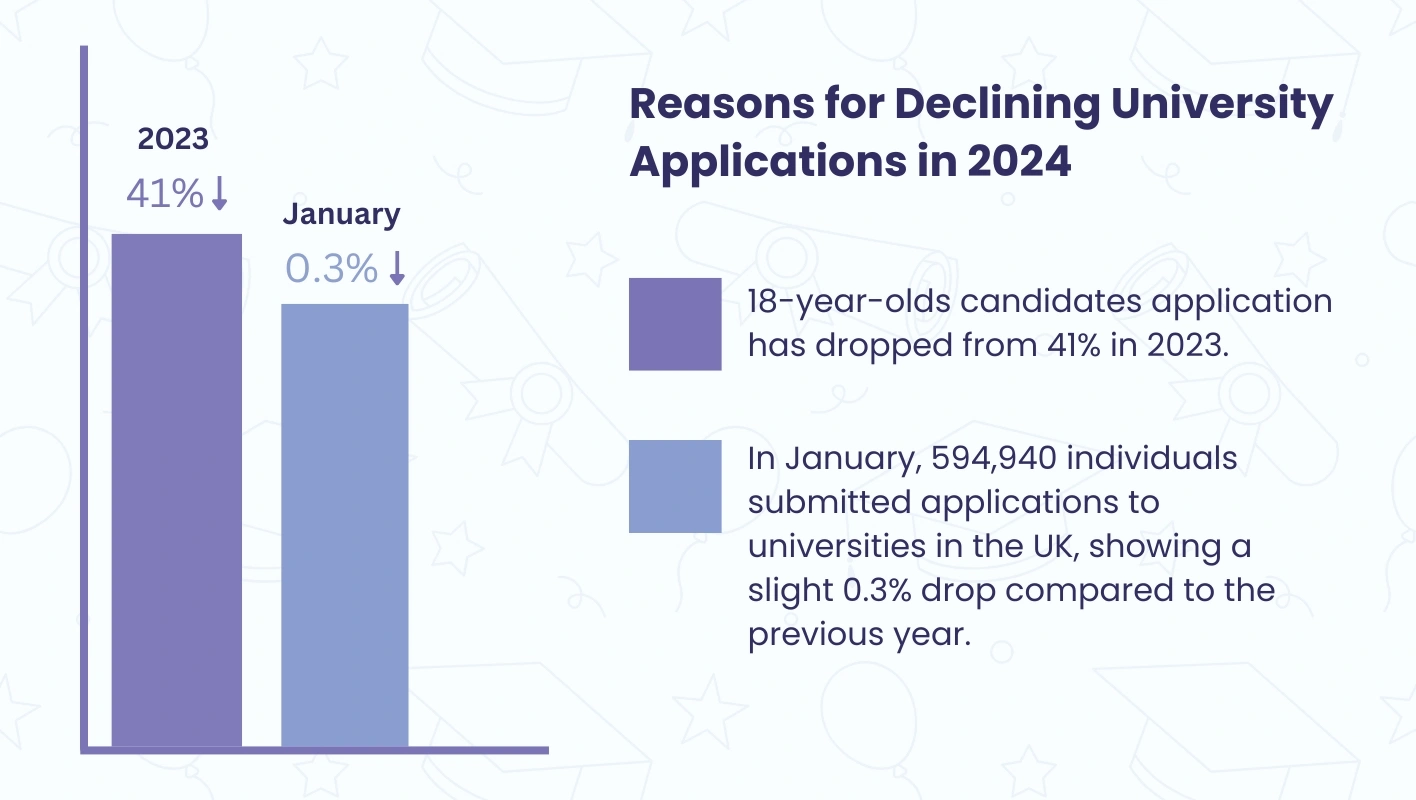Larger the Assignment, Bigger the Savings For Your Pocket!

Examining the history of higher education in Britain reveals that no university has ever gone bankrupt, an impressive feat considering its over 900 years of existence. The country's circumstances have shifted, and the anguish of academic institutions is clearly audible.
The leader of the most extensive college union has devised a crisis relief plan to combat a potential "disaster." Various official reports have issued successful warnings regarding the foundation of UK universities. Local students pay tuition fees of $250, while British schools now rely on international students who are charged higher costs for their education. This crunch was expected, so don't be surprised! In this blog, we have ensured that international students are informed about the UK's current circumstances before selecting it for their higher education.
Let us begin!
The landscape of university applications in the United Kingdom has dramatically shifted due to the Brexit movement's ripple effects. The movement has altered the scenario of higher education. In the pre-Brexit era, the country was a welcoming hub for international students and students from the European Union, who benefitted from home-fee status and equal opportunities for financial support. Therefore, contributes to a stable rise in enrolment figures, with international students showing a huge segment of the higher education population.
However, since the departure of the UK from the EU in the year January 2020, the new visa and tuition rules have turned this environment into a more resistive one. As we approach the 2024 academic session, this historical backdrop has interlaced with the present realities where students feel pressured for student debt. Students are now more aware that the loan they are taking is not enough for living costs, and there are financial uncertainties rising from the economic instability and the pandemic.
This crisscrossing of Brexit’s impact along with the present economic scenario builds a formidable barrier that may discourage future generations of students from pursuing their higher studies in the UK.

There is a decrease in UK university applications in 2024. The percentage of 18-year-olds candidates application has dropped from 41% in 2023. It has been designated as the bottom level ever since COVID-19. In January, 594,940 individuals submitted applications to universities in the UK, showing a slight 0.3% drop compared to the previous year.
Over the last three years, the worry of declining applications has been ongoing. This decline in UK universities is mainly due to the country's increased young population. Therefore, questions about the ongoing appeal for higher education are being raised.
Student debt is specifically impacting UK universities by amplifying several financial burdens among potential students. It is stopping students from taking an interest in further education. Recent statistics reveal that 49% of UK university students and graduates aged 18 to 22 are concerned about opting for student loans and thinking more than once about enrolling in a university. Here is why getting into a university is becoming a concern for students.
The fear among students of furthering their education is mainly affected by the recent changes the UK government has made. The maximum tuition fee has been frozen until the 2024-25 academic year, which lowers the repayment thresholds to save the government money. Still, for students, this leads to higher overall repayments over the loan lifespan. The average loan in the UK is 7,590 dollars for 2023-24, but more is needed to cover students' living costs.
Along with financial issues, potential students worry about their Work Opportunities after graduating. Another survey highlights recent graduates who indicated that the economic climate will affect their employability. Job insecurity is undoubtedly increasing among these students, and over 69% of graduates believe their job prospects are decreasing. The fear of having no job for students is pressing them to sit with their decision to apply for admission to UK universities, as the unreliability of higher education and its potential return on investment is hovering over students' minds. Hence, the fear of job availability and career stability overpowers the motivation to obtain a university education.
The drop in university enrollment in the UK highlights a severe threat to the financial stability of higher education organizations across the UK. Predictions have been made that up to 84% of UK universities may face a shortfall due to the hindrance of domestic enrollment and declines in international recruitment. As the situation of UK institutions is not up to the mark, some of them are adapting cost-cutting measures like staff layoffs and course eliminations. This is happening mainly in less popular fields like the humanities; therefore, these actions may diminish the variety and quality of education.
Your First Order
Get 20% OFF!
The stakeholders have responded to the ongoing challenges within the higher education zone by demanding systematic reforms. They demand that funding models be reevaluated to reduce dependency on high tuition fees paid by international students.
They are simultaneously commending maintenance grants for low-income students. If these measures are successful enough, they could greatly support students and help them mitigate the impact of high living costs.
University application trends in the UK signal a need for universities to adopt new requirement strategies and thoroughly support the systems. Financial literacy programs, increased scholarship opportunities, and a reassessment of tuition structure could make higher education affordable and exciting.
On the other hand, universities must also foster close relationships between educational institutions and the job market to ensure that the curricula smoothly blend with employment demands and chances, enhancing students' employability.
The higher education crisis in the UK highlights the immediate change required to combat declining applications, job market concerns, and rising student debt. Stakeholders should consider understanding the importance of this situation and working together with universities to maintain the applicable pathways for students seeking to pursue higher studies in the UK.